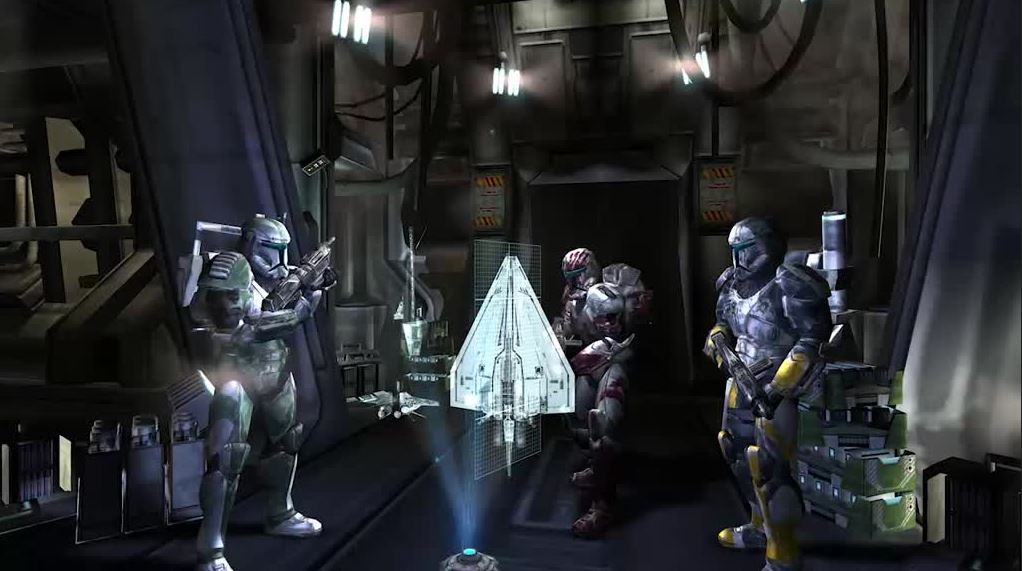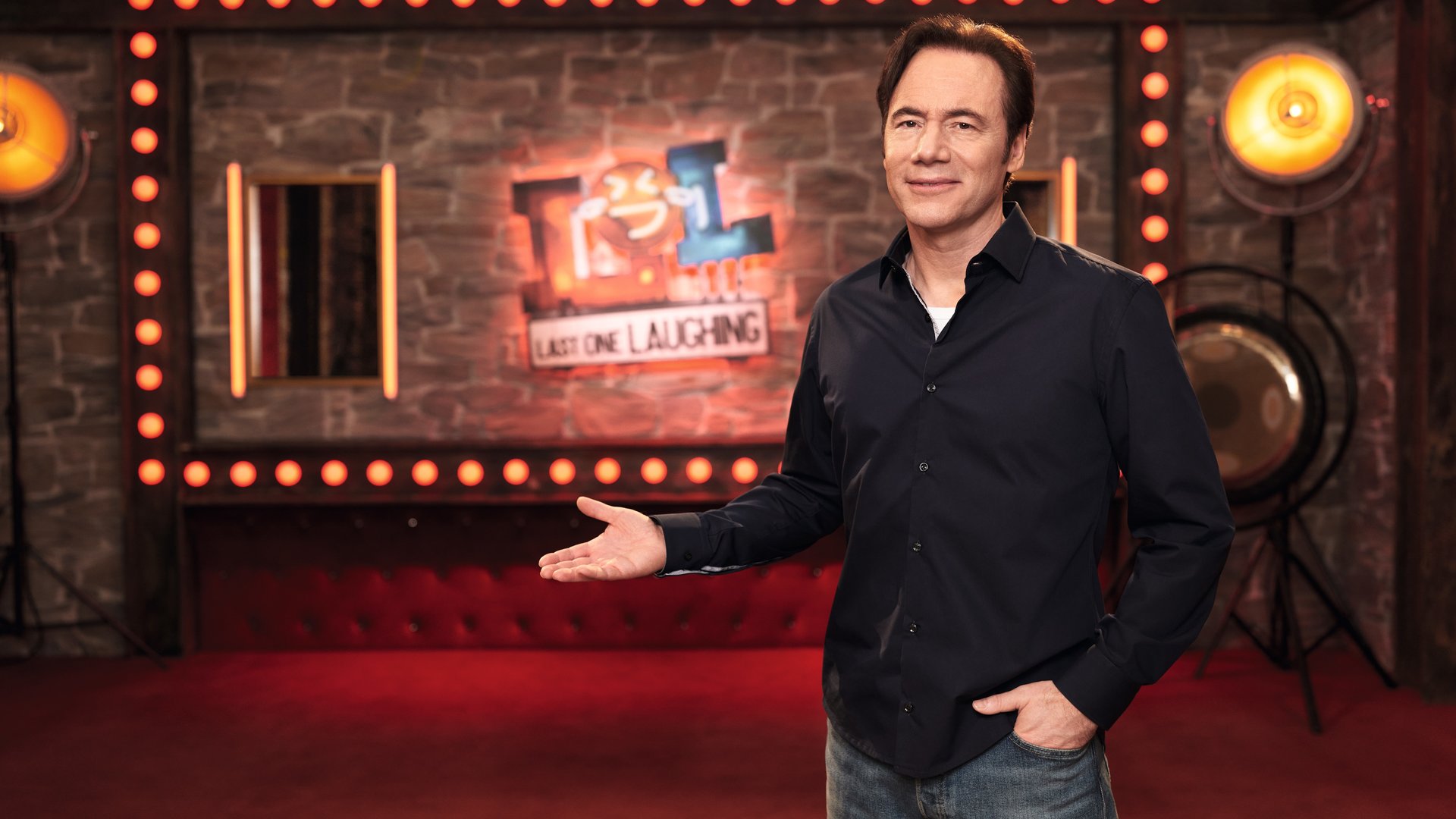#SocialMedia #Every Guy Ritchie Movie, Ranked Worst To Best #BB
„Every Guy Ritchie Movie, Ranked Worst To Best“
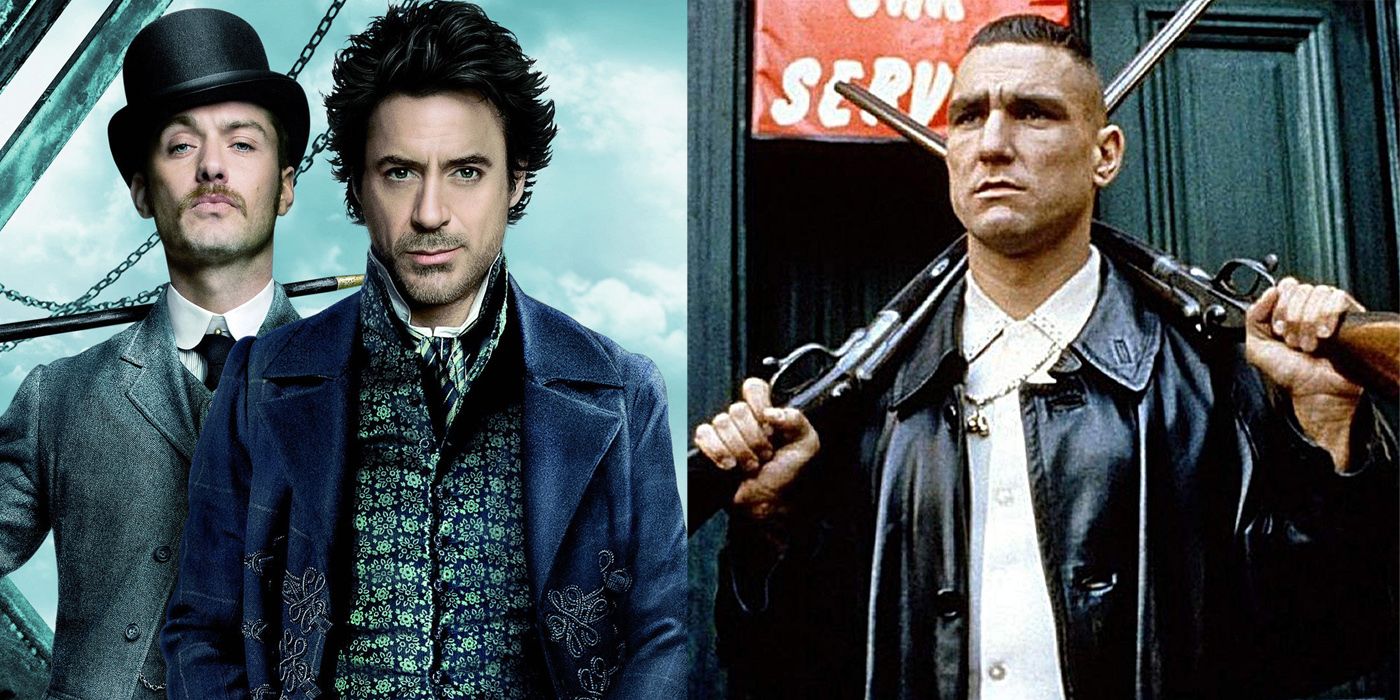
With the release of The Gentlemen, it’s time to take a look at the work of director Guy Ritchie, ranked from worst to best. Ritchie has directed a number of critically and financially successful films over the years; however, the director’s career hasn’t been without mishaps.
Over the course of his 22-year career, Guy Ritchie has gone from being the wunderkind of ‘90s British cinema, to a tabloid joke, to a Hollywood power player, and back again. Everything about him and his work seemed a tad too easy to mock, be it his Dick Tracy-style gangster movies about foul-mouthed Cockneys and their mishaps, or his very public marriage to Madonna, one of the most famous women on the planet. It seemed all the more baffling that a director best known for hard-R films of violence and chaos would become one of Disney’s more successful directors of live-action family fun.
It’s worth remembering, however, what made Guy Ritchie’s work so thrilling in the first place and why; despite all the jokes, he’s still a director worth watching. His newest movie, The Gentlemen, sees him returning to familiar ground with the kinds of stories that made him famous, but where does it rank among the filmmaker’s work? Below is Ritchie’s entire filmography, ranked from worst to best.
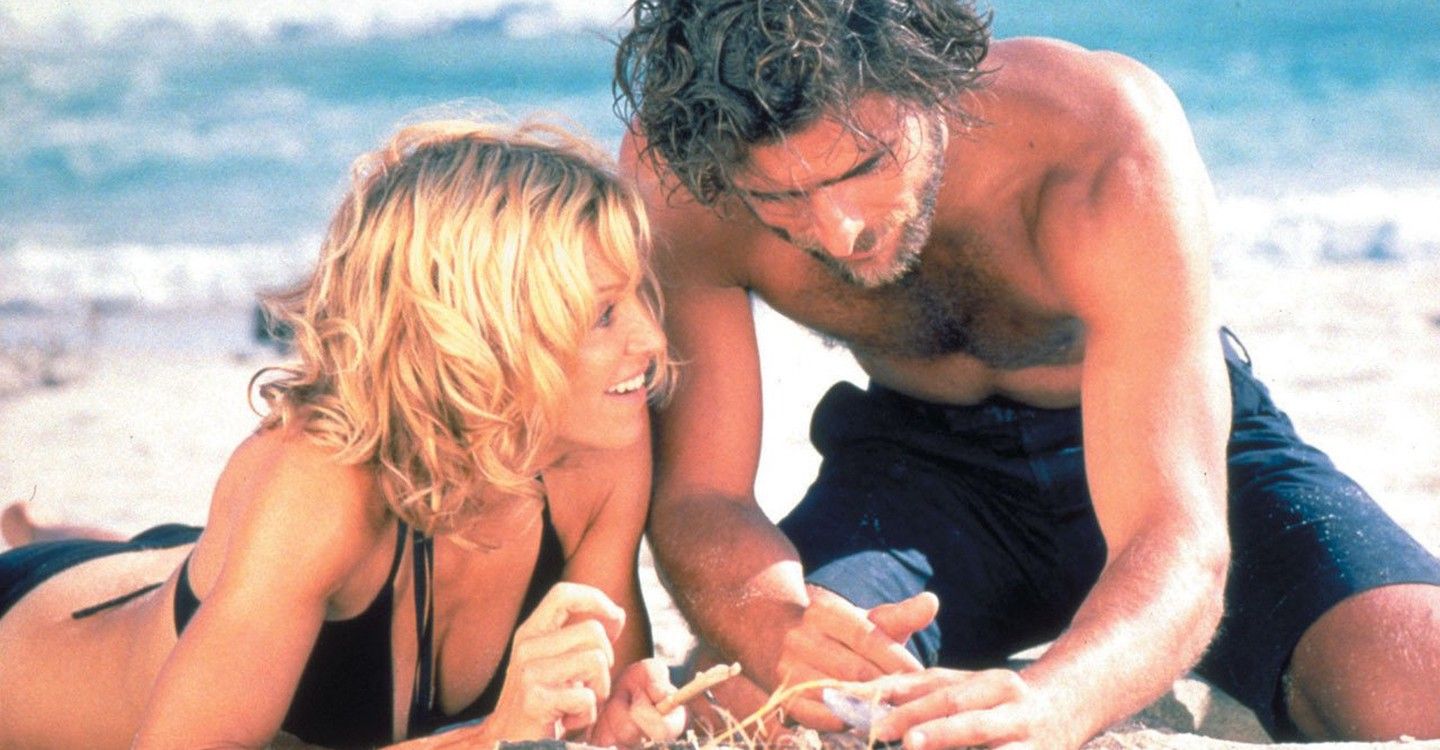
The marriage between Ritchie and the megastar queen of pop Madonna never made much sense as a celebrity power-couple, and by the time you’ve finished watching Swept Away, you can’t help but wonder what the pair ever saw in one another. Adapted from an Italian film directed by the legendary Lina Wertmuller, Swept Away is a vacuous waste of time for everyone involved. Where the original film is deeply political story that uses a battle of the sexes to embody a satire of social class and the war between capitalism and communism, the remake is just an excuse for a hot beach romance (albeit one where the leads have negative chemistry).
Wertmuller’s original film is deeply problematic, with Anthony Kaufman of The Village Voice calling it „possibly the most outrageously misogynist film ever made by a woman.“ Ritchie’s isn’t quite that controversial, but it still leaves a lurching feeling in the viewer’s stomach, especially given how much of the story involves the director’s wife being mocked, degraded, and slapped around. Madonna was never a great actress, but she’s especially abysmal here, not helped by Ritchie’s obvious lack of interest in the story and themes, such as they are. It’s not even laughably bad, sadly. It’s just terrible.
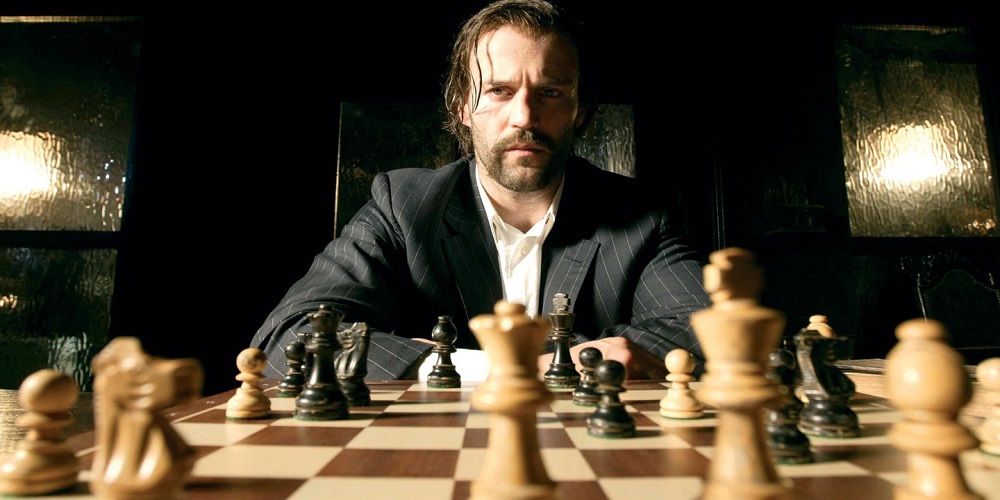
Following the critical and commercial mauling received by Swept Away, Ritchie decided to return to his gangster movie roots, but Revolver came with a more philosophical twist. The movie is allegedly inspired by his dabbles with Kabbalah, a school of Jewish mysticism that inexplicably became the cool celebrity religion of choice in the early 2000s, in large part thanks to the devotion of Madonna.
Whatever worthy aspirations Ritchie had for the film, they’re not on show in Revolver, a movie that is simultaneously baffling and unintentionally hilarious. Ritchie is certainly trying to make something more artistic here, but all his creative choices are extremely misguided, to put it politely. It doesn’t help that even the cast, headed by Jason Statham, looks completely bemused by the incoherent dialogue they’re spouting.
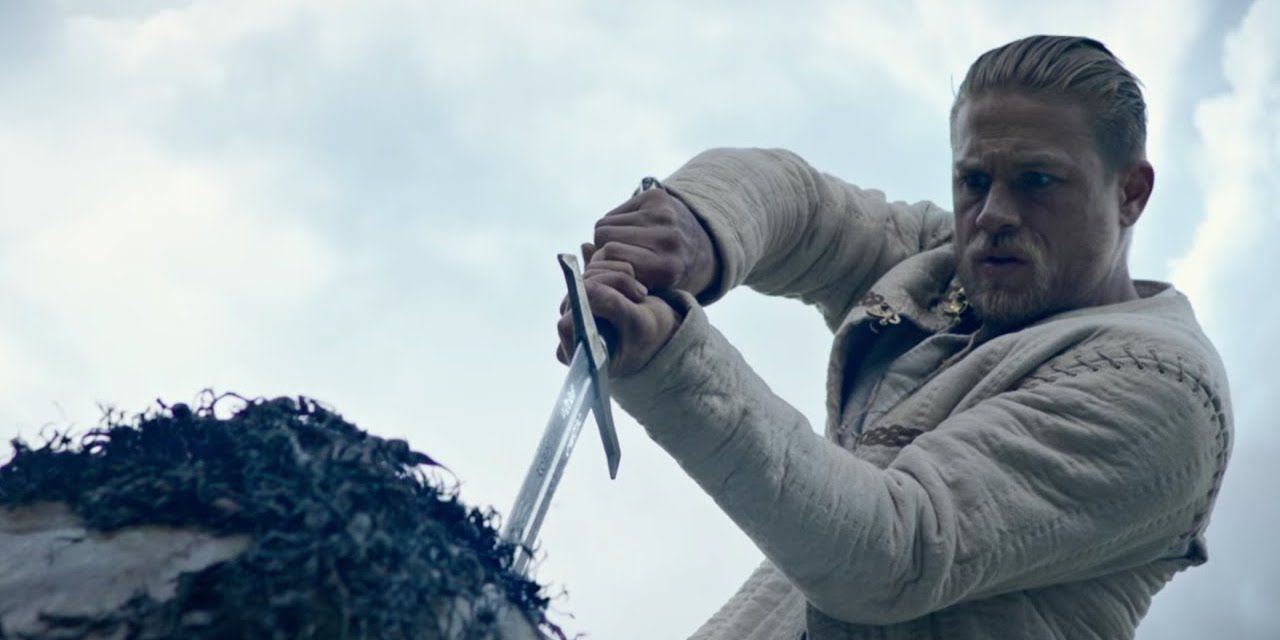
Following the financial disappointment of The Man From U.N.C.L.E., Ritchie was hired by Warner Bros. to help them kick off what was planned to be a multi-film Marvel-style franchise centered on the myth of King Arthur and the knights of the round table. Many studios have tried to replicate Disney’s wild success by taking familiar (and typically public domain) properties and expanding them into sagas with sequel and spin-off opportunities, and none of them worked. King Arthur: Legend of the Sword is perfect proof as to why this formula can’t work for every property. The movie is far too focused on establishing lore and plot threads it doesn’t intend to pay off over the course of one movie, meaning the audience has very little to care about.
Ritchie’s style, the very reason to hire the director in the first place, gets moments to shine, but the vast majority of the film sees him in staid studio director mode, and it’s such a waste of his time and ours. There are some enjoyable moments to be had, but the overall experience is drab and never really justifies its own existence. Whereas Swept Away and Revolver were at least fascinating disasters, King Arthur is just boring. Shockingly, no sequel followed. The movie reportedly lost Warner Bros. somewhere in the region of $150 million, making it one of the biggest box office flops of the past decade.
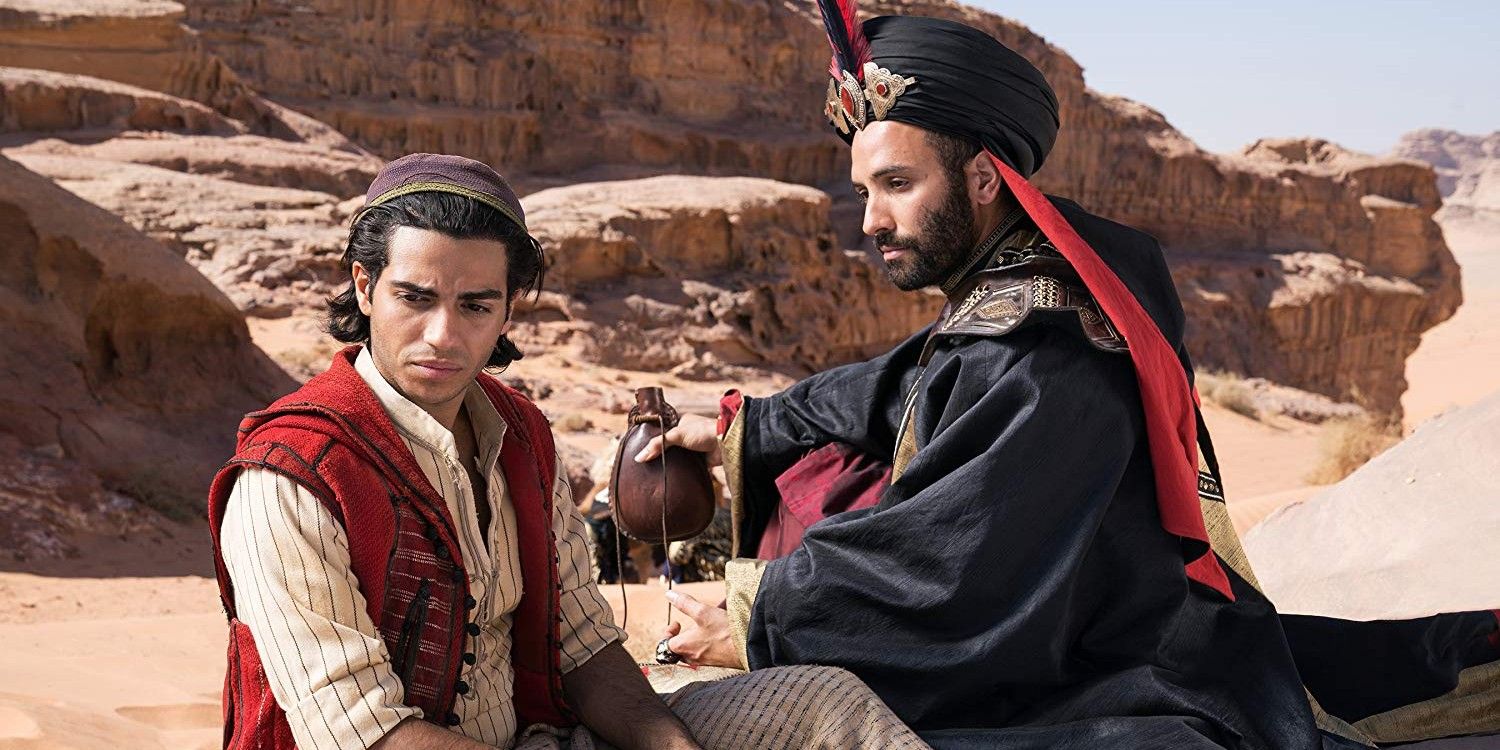
It’s never really made a lot of sense to have Guy Ritchie be a sturdy studio director, the kind who one can rely on to get the job done with no fuss or any of that auteur meddling. This was one of the main reasons it proved so surprising when Disney hired him to helm their live-action adaptation of Aladdin. Ritchie is entirely the wrong director for this film for many reasons, but the end result is still a hell of a lot more fun and interesting than it gets credit for, especially when compared to other deeply inert Disney remake offerings like Beauty and the Beast. The film is vibrant and fun, and has an extremely charming cast who do more than merely impersonate their cartoon originals. Is it representative of Ritchie at his best? Not really, but for a film that most people doubted would work, Aladdin still gets the job done.
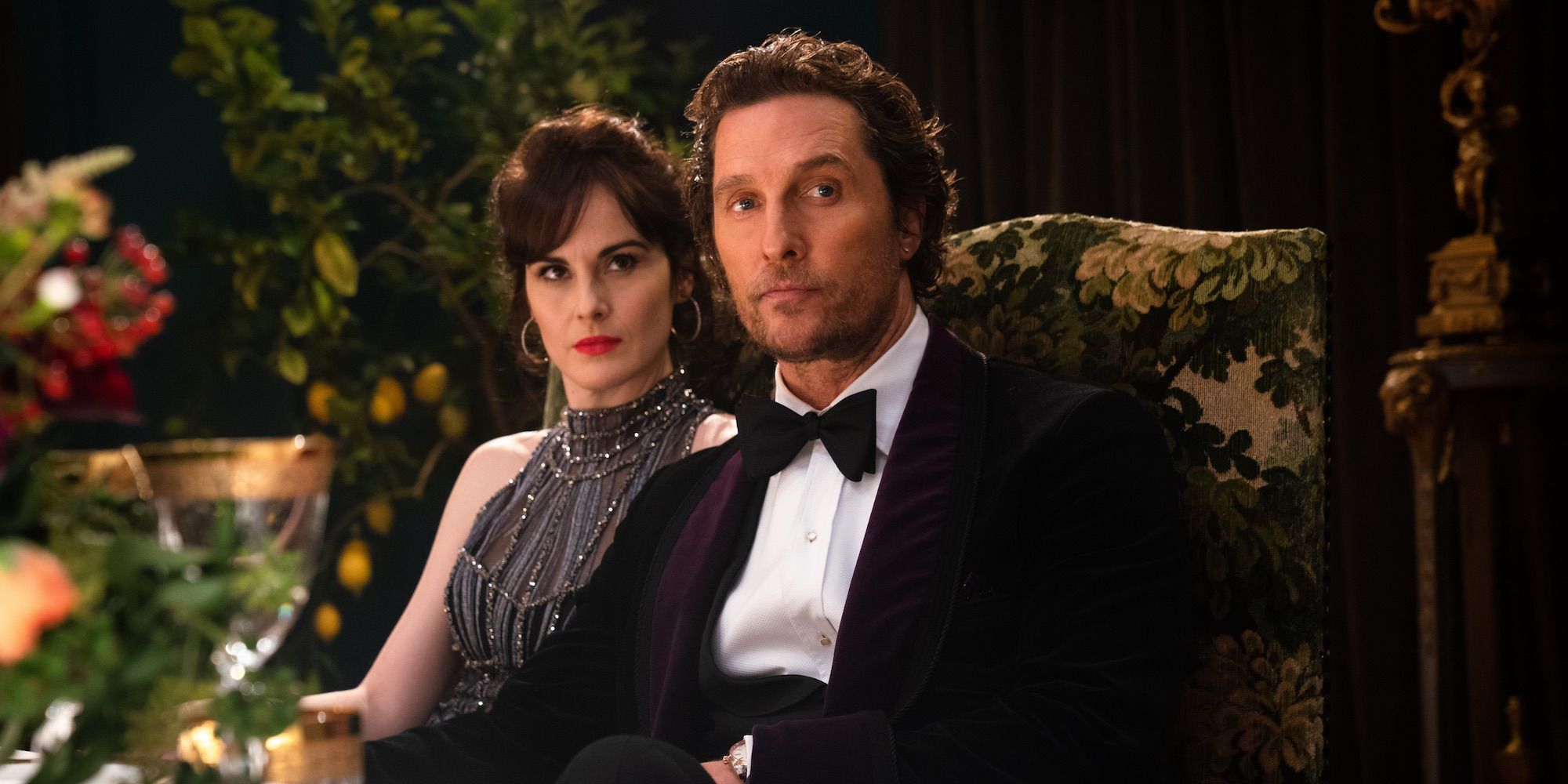
Ritchie’s newest film is being hyped up as his return to form, a claim that doesn’t make much sense given that Aladdin is better than it gets credit for and was his biggest grossing title by a long shot. Still, The Gentlemen is definitely indicative of Ritchie returning to the fast-talking London gangster hijinks that made him famous. After a few years playing by Hollywood’s rules, this movie certainly feels like a throwback, albeit a very refined one made by a director who can still command a decent budget.
The Gentlemen is a veritable full house bingo card of Ritchie tropes – stylized dialogue, copious use of the “C” word, Cockney tough guys, two-timing wheeling and dealing, and that nagging sense that everyone involved is trying very hard to be cool. The Gentlemen is great fun, especially with its self-conscious embrace of cinematic tropes, but a story like this could have used a bit less Hollywood polish. It’s also weighed down by some seriously unnecessary racism, mostly directed at Henry Golding’s character. If Ritchie was attempting to show the grimy criminal underground for all its darkness with such language choices, it doesn’t work given how obviously over-the-top and glitzy its surroundings are.
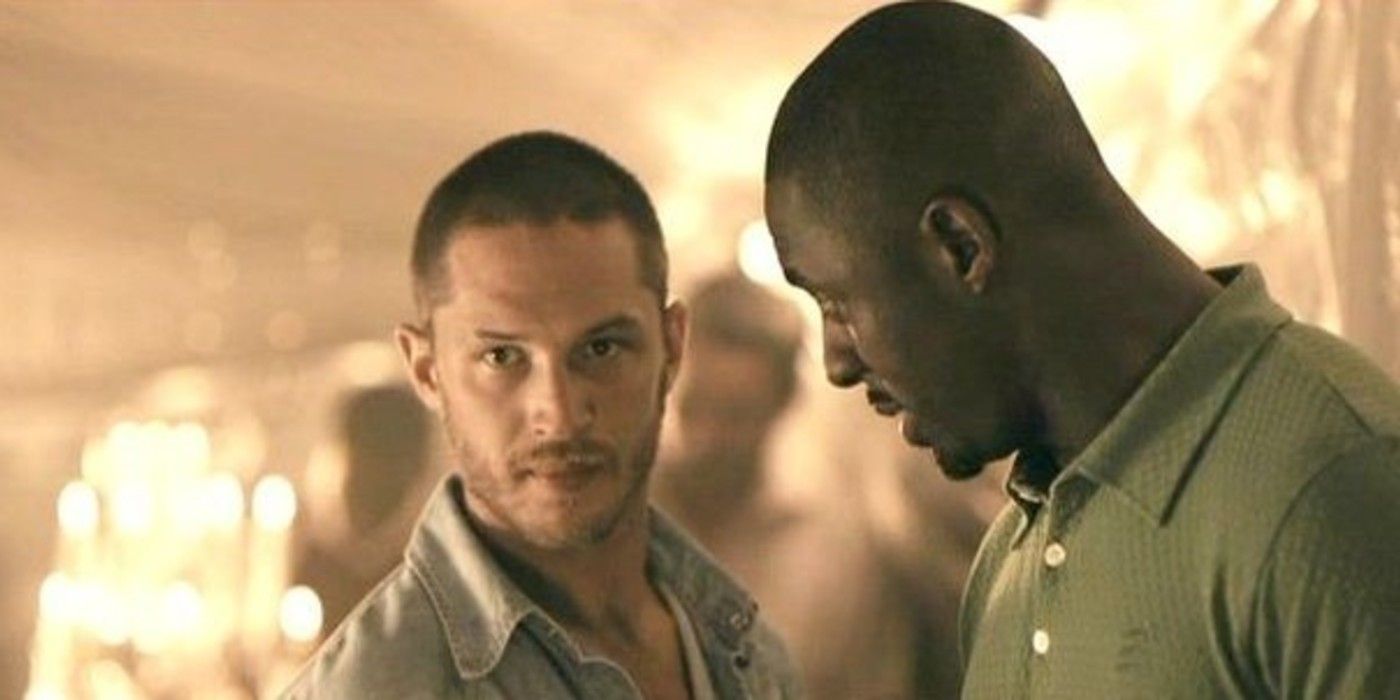
Deviating from the gangster genre didn’t go well for Ritchie during the 2000s so RocknRolla, released after the disaster of Revolver, was his attempt to get back on track and give the people what they want. You can practically smell the relief of the director and his delight at being back on familiar ground, especially with such a strong and endlessly charismatic cast that includes Mark Strong, Idris Elba, Gerard Butler, Tom Hardy, and Thandie Newton. Does RocknRolla reinvent the wheel? Hardly, but it’s such a step up from Revolver that you can’t help but be somewhat won over by it.
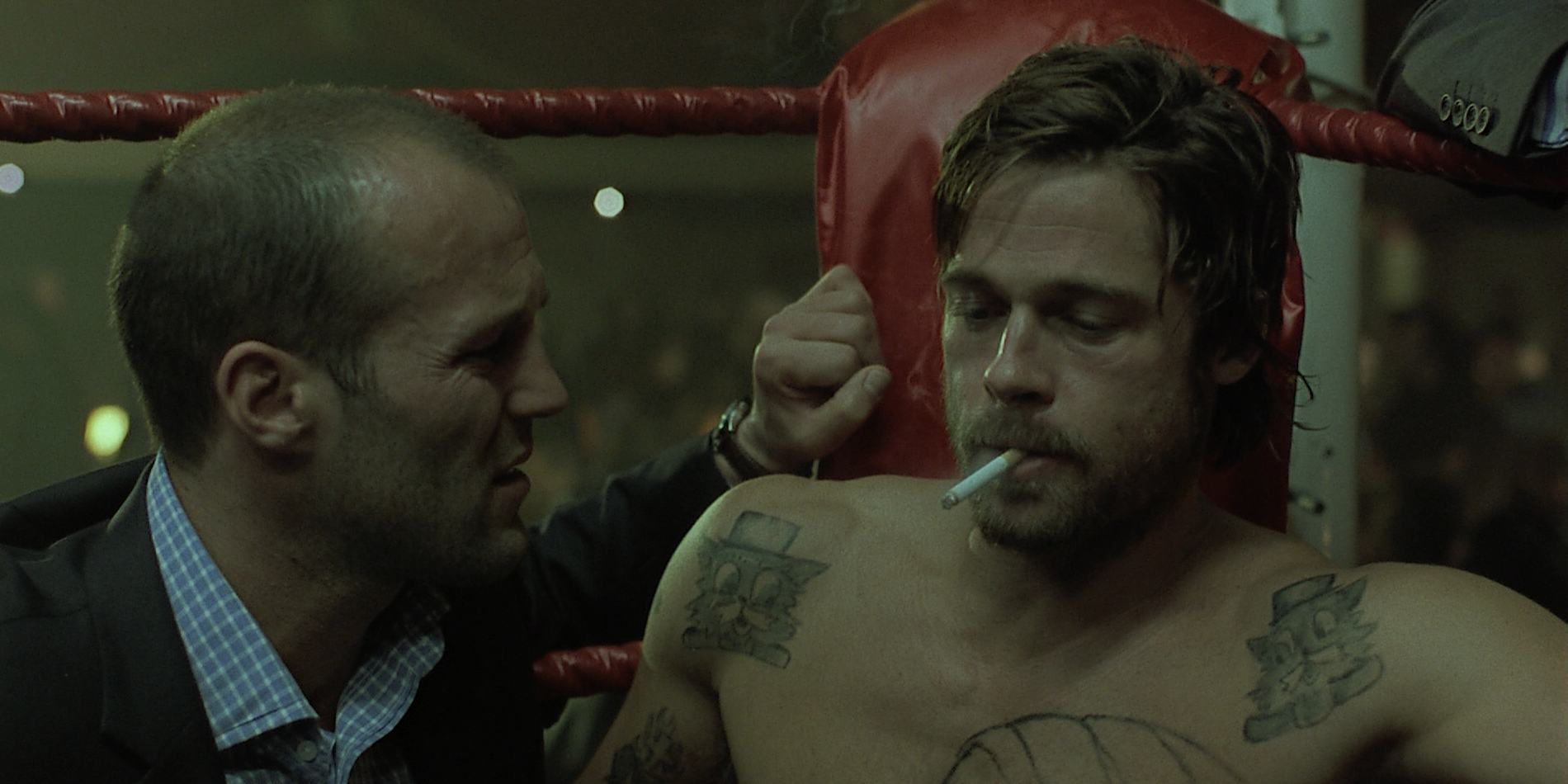
After the massive success of Lock, Stock and Two Smoking Barrels, Ritchie stayed on a familiar path with his follow-up, Snatch. The big difference this time was the presence of Hollywood’s heartthrob prince Brad Pitt playing an incomprehensible bare-knuckle boxer. Everything that’s fun and exciting about Ritchie films is on display here, but Roger Ebert’s review describing Snatch as following the formula of Lock, Stock „so slavishly it could be like a new arrangement of the same song“ is tough to ignore. It’s never boring, but Snatch still has that feeling of being more of the same at a time when we couldn’t wait to see what Ritchie had to offer. Still, for more of the same, it is really great fun.
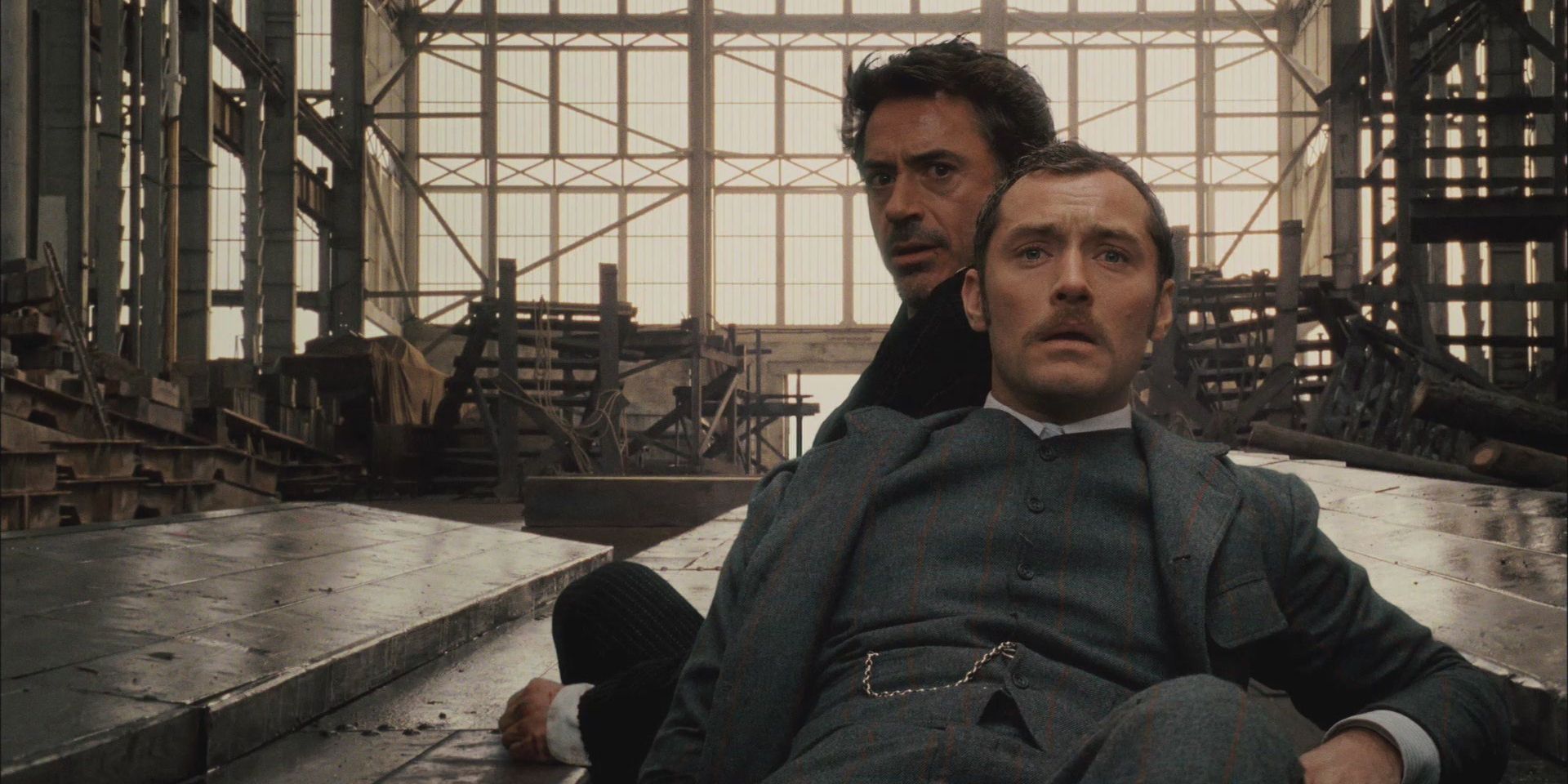
When it was announced that Ritchie would be directing an adaptation of the iconic Sherlock Holmes stories, Arthur Conan Doyle purists were aghast, but he ended up being a perfect fit for the old-school pulpy adventure qualities of classic Holmes. This is a take on the tales that prizes action and thrills above the more analytical qualities of its hero, but it all holds together marvelously, in large part thanks to Ritchie’s stylized approach to Holmes’s mindset. The heart of this movie is the sparky chemistry between Robert Downey Jr. and Jude Law, who give the well-trodden dynamic between Holmes and Watson a new breath of life thanks to their screwball-style dialogue and love-hate back and forth.
What makes Sherlock Holmes work is its willingness to step away from the more staid elements of the source material in order to embrace the action and sheer visceral thrill of the penny dreadful pulps that Conan Doyle often found inspiration in. The best Holmes adaptations allow the audience to be as overwhelmed by the mental as the physical, and Ritchie strikes a cunning balance between both aspects. All that and it looks and sounds gorgeous, with one of Hans Zimmer’s more underrated scores!
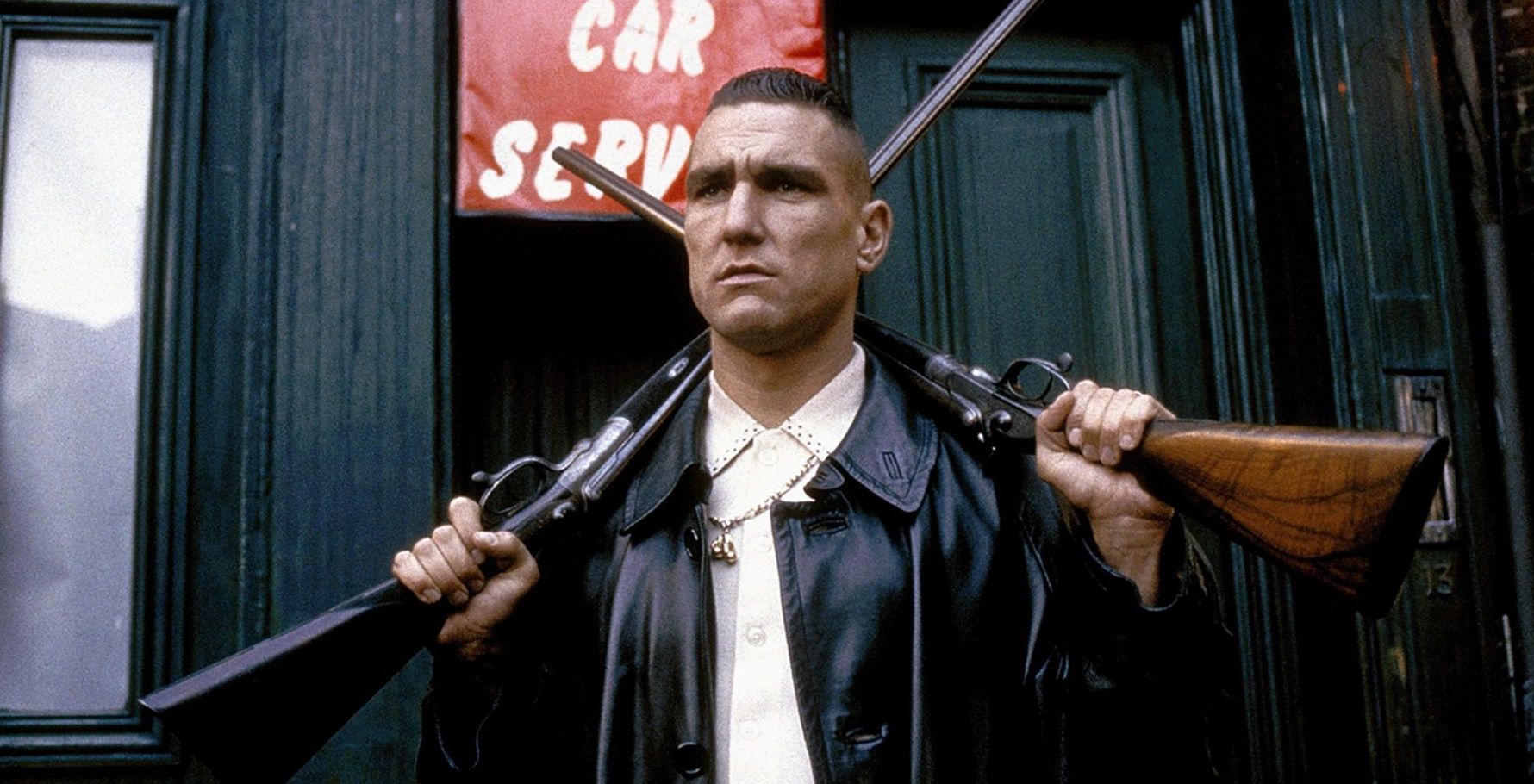
The film that started it all is still one of Ritchie’s best. It’s hard to overstate just how big a deal Lock, Stock and Two Smoking Barrels was when it premiered in 1998, blending the best aspects of classic British crime cinema such as The Long Good Friday with the decade’s Cool Britannia aesthetic and a dash of Tarantino to keep things fresh. The plot is wonderfully convoluted and ridiculous, and it’s delivered with the kind of confidence that’s rare from a director making his feature debut. It’s perfectly cast with an ensemble of actors who would become Ritchie regulars — Dexter Fletcher, Jason Statham, and Vinnie Jones — and still manages to pack a punch over 22 years later.
Lock, Stock and Two Smoking Barrels felt like a much-needed breath of fresh air in British cinema at a time when it sorely needed it, and even though that formula Ritchie perfected has been ripped off and homage in countless wannabe movies, the original is still the best.
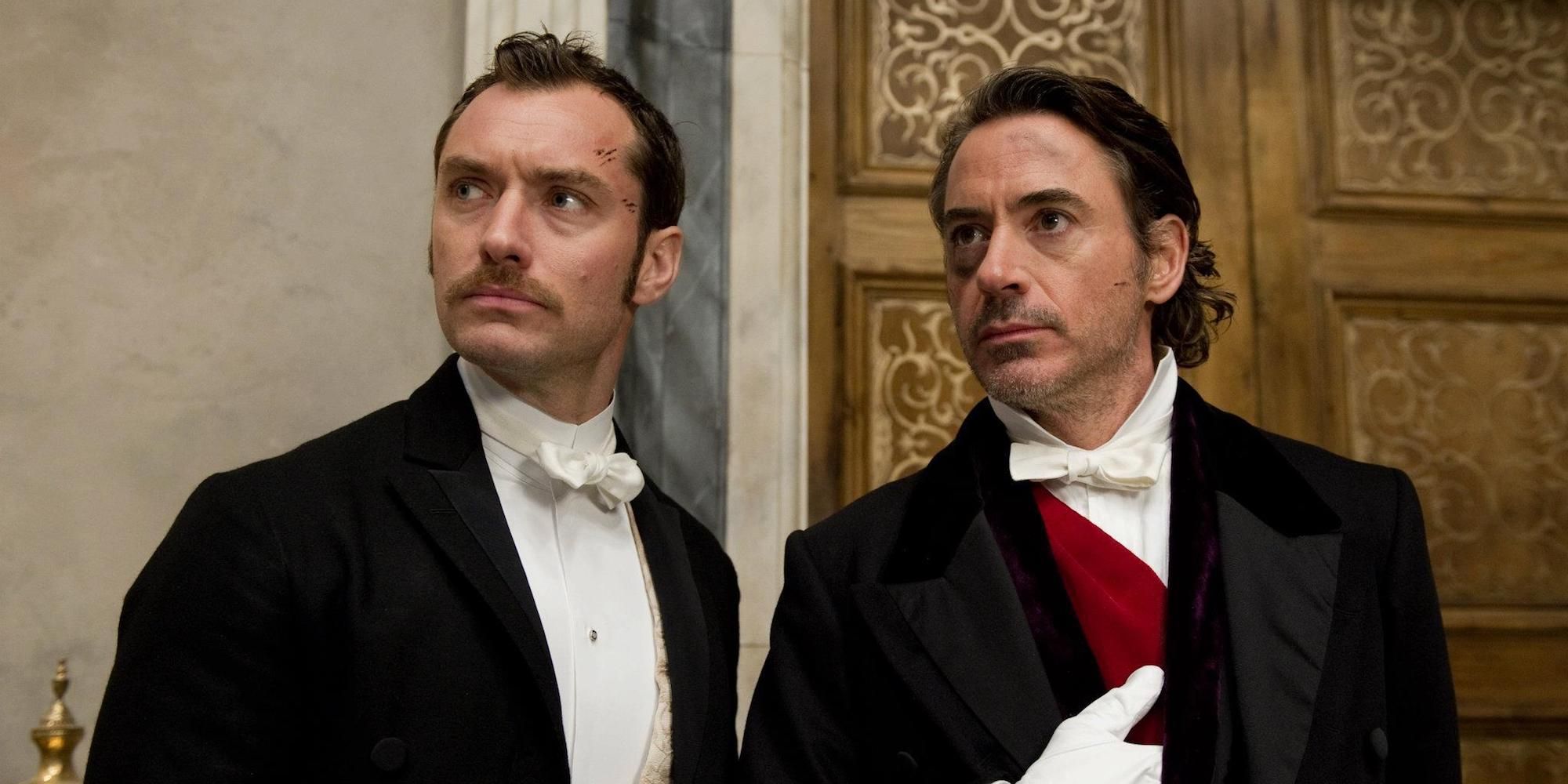
For a sequel, you need to go bigger, funnier, and higher stakes, and Ritchie did just that with Sherlock Holmes: A Game of Shadows. The action scenes are more bombastic, the stakes are higher, and the villain is an even more insidious threat, as Holmes comes head-to-head with his most worthy nemesis, Professor Moriarty (played with devilish charm by Jared Harris). Critic Scout Tafoya called Game of Shadows one of the best films of 2011, celebrating how it was one of many titles from that year that „used digital cameras to show the world behind explosions in starker, stranger light, while constructing a backbone of classical ideas and images.“ Game of Shadows is an even better mix of retro and modern than its predecessor. It shows Ritchie at the top of his game, blending his undeniably contemporary attitudes with enough Victorian melodrama to keep the action propulsive and often stunning to look at. It’s a shame Ritchie won’t be returning to direct the third film.
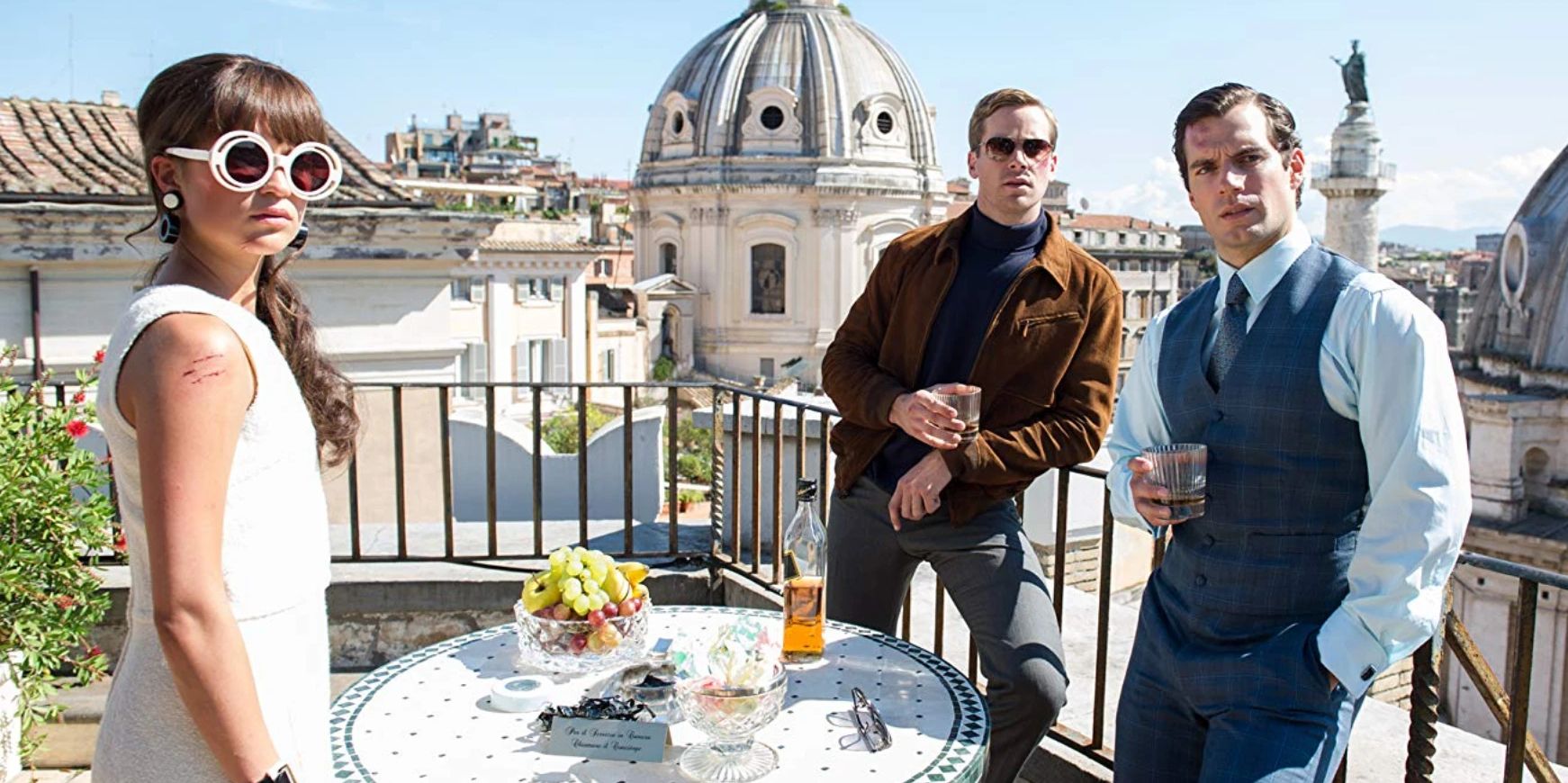
Ritchie’s adaptation of the classic 1960s spy TV series was a major financial flop upon release in 2015, grossing only $107 million from a reported budget of $75 – 84 million. The Man From U.N.C.L.E., however, has experienced a second life online thanks to a dedicated fanbase and the continued support of the critics who loved it when it premiered. And for good reason: this is Guy Ritchie at the peak of his powers, showing exactly why he’s one of the most interesting and vibrant directors of action cinema working today.
Starring Henry Cavill, who has never been more charismatic, and Armie Hammer as the American and Soviet secret agents forced to work together to prevent a worldwide catastrophe, The Man From U.N.C.L.E. is a seriously stylish retro blockbuster that’s never less than effortlessly cool in every scene. The style is the substance here, from the impeccable costuming to the jazz-flute driven score, but this is also a film with verve and charm at its core. Everyone involved is clearly having the time of their lives in this film and the chemistry between the core cast practically radiates from the screen. Thankfully, The Man From U.N.C.L.E. is getting its well-deserved dues with fans now, but the lack of a sequel still stings.
If you want to read more Like this articles, you can visit our Social Media category.
if you want to watch movies go to Film.BuradaBiliyorum.Com for Tv Shows Dizi.BuradaBiliyorum.Com, for forums sites go to Forum.BuradaBiliyorum.Com .
